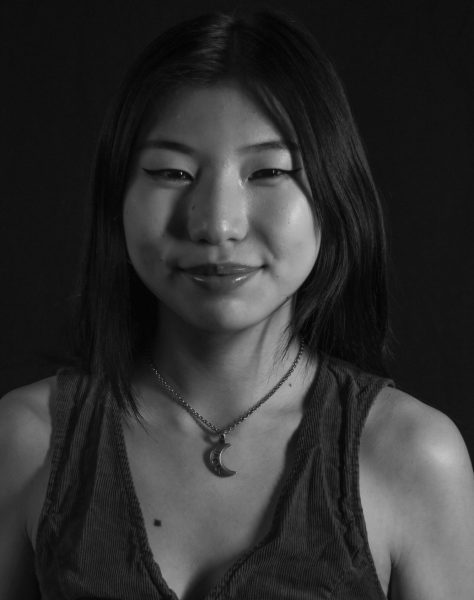Fetishization drives violence against Asian women

Daughter Of The Dragon, Anna May Wong
April 7, 2022
Content Warning: Anti-Asian racism, misogyny, sexual violence
On March 16, 2021, eight people were shot and killed by a white man in Atlanta massage parlors, six of the victims being Asian women. The police defended his claim that the killings were “not racially motivated” but rather a way for the shooter to “eliminate [his sexual] temptations.” Throughout the COVID-19 pandemic, 68% of anti-Asian hate incidents were committed against Asian women, according to nbcnews.com. These continuous acts of violence are not driven simply by “hate” but the sexualization and fetishization of Asian women and misogyny-affected individuals — a direct and violent result of Western imperialism in Asia.
Fetishization is not complimentary nor advantageous and instead makes people feel entitled to Asian womens’ bodies and their lives. The Atlanta shooting and the recent deaths of Michelle Go and Christina Yuna Lee highlight the specific violence experienced by Asian women and make it clear that gender-based racism is a systemic issue. Western imperialism and capitalism shaped the conditions as to which survival itself is differentiated along the lines of race, class and gender, leaving marginalized communities exploited and continuously subjected to violence.
It is critical to learn and be aware of fetishization as an instrument of oppression for maintaining white supremacy in order to effectively combat gendered racism and to protect the lives of Asian women and misogyny-affected individuals today.
Dragon Lady Stereotype
Asian women have historically been stereotyped in two main ways while being fetishized, according to today.com: The nefarious, sexually manipulative Dragon Lady and the docile, submissive Lotus Blossom. Both stereotypes were and still are used to justify Western imperialism in Asia and anti-Asian racism, especially against Asian women, in the U.S.
The “Dragon Lady” is the feminine personification of “Yellow Peril,” the racist fear that East Asian people are a threat to the West, according to xinshengproject.com. The stereotype labels Asian women as exotic, sexual temptresses that must be conquered and colonized to uphold white supremacy, further contributing towards the stigmatization and endangerment of Asian women.
The “Dragon Lady” stereotype first became widespread after the Page Act of 1875, which prohibited the entry of Asian women into the U.S., who were perceived to be sexually immoral, according to immigrationhistory.org. The Page Act perpetuated the idea of Asian women as hypersexual on a systemic level, and the same rhetoric was then used continuously after, such as during the Vietnam War. The American government depicted Vietnamese women as Dragon Ladies to soldiers to justify their military intervention in Vietnam as well as justify the sexual colonization and exploitation of Asian womens’ bodies by mainly white American G.I.s during their time abroad, according to cambridgeblog.org. The stereotype was often utilized in Hollywood as a trope when involving an Asian American actress. Anna May Wong, the first Chinese American movie star, was often given the role of the “Dragon Lady,” including playing the Chinese evil genius Fu Manchu’s daughter in the movie “Daughter of the Dragon” in 1931. Wong was even dubbed by Times as “the screen’s foremost Oriental villainess” in her obituary.
Lotus Blossom Stereotype
In contrast, the “Lotus Blossom” stereotype portrays Asian women as helpless, obedient and sexually complaint. The trope implies that Asian women do not oppose being subordinate to white men and even welcome colonization by white empires as a means of salvation. The War Brides Act of 1945 implemented the idea of “saving” Asian women into law, in which it allowed “alien spouses” of the U.S. Armed Forces to immigrate to the U.S., according to nationalww2museum.org. These brides were largely Asian women from war-torn countries, including Japan, Korea and Vietnam. The law was necessary because, at the time, no Asian person could legally enter the country due to legislation like the Chinese Exclusion Act and the Immigration Act of 1924.
The stereotype is a white supremacist ideology that feminizes Asian people to be docile, submissive and in need of Western imperialism. As a result, the ongoing exploitation and abuse of Asian women in the hands of Western imperial governments and their militaries remain unacknowledged. Sex industries revolving around American military bases continue to exist in South Korea, Thailand, the Philippines and Vietnam, according to politico.com. The stigmatization shaped by these two stereotypes silences the concerns of women and girls in these industries.
Taking Action
With the rise in anti-Asian hate incidents during the COVID-19 pandemic, movements such as #StopAsianHate and #StopAAPIHate were created in an effort to combat this racialized and gendered violence. These efforts, however, remain largely surface level as “hate” cannot even begin to address the systemic issues that continuously perpetuate harm towards Asian women and misogyny-affected individuals. To disregard the imperialist foundation of gender-based racism and label it as simply “hate” is to further legitimize oppressive systems, such as policing and prisons, as an appropriate response.
For example, President Biden passed the COVID-19 Hate Crimes Act into law on May 20, 2021, garnering praise from movements like #StopAsianHate, according to npr.org. The problematic nature of the law stems from the fact that it centers criminal law enforcement in its solutions against violence, authorizing grants to state and local governments to conduct crime-reduction programs to prevent and respond to hate crimes. Increased police presence fails to address issues like poverty, lack of housing and inaccessibility of mental health services for both perpetrators and victims as root causes of violence. It only further endangers Black and Brown communities to police brutality and does not provide genuine safety for Asian women either. Asian sex workers are at an especially high risk because they are easily susceptible to police violence due to racial stereotypes as well as the stigmatization and criminalization of their labor, according to thenation.com.
It is important to recognize and deconstruct the unique violence Asian women and misogyny-affected individuals face today due to gender-based racism. Listening to Asian women and learning about the imperial history behind fetishization is critical in understanding how it acts as an instrument of oppression and violence. Increased policing, however, cannot be trusted to protect Asian women, as these forces do not exist in the interest of public safety and justice but rather to further perpetuate social control and marginalization. Communities must address the damaging impacts of fetishization alongside the underinvestment across communities of color by the American government that shape the conditions for crime and violence to create the space in which Asian women are truly affirmed and protected.
















































































